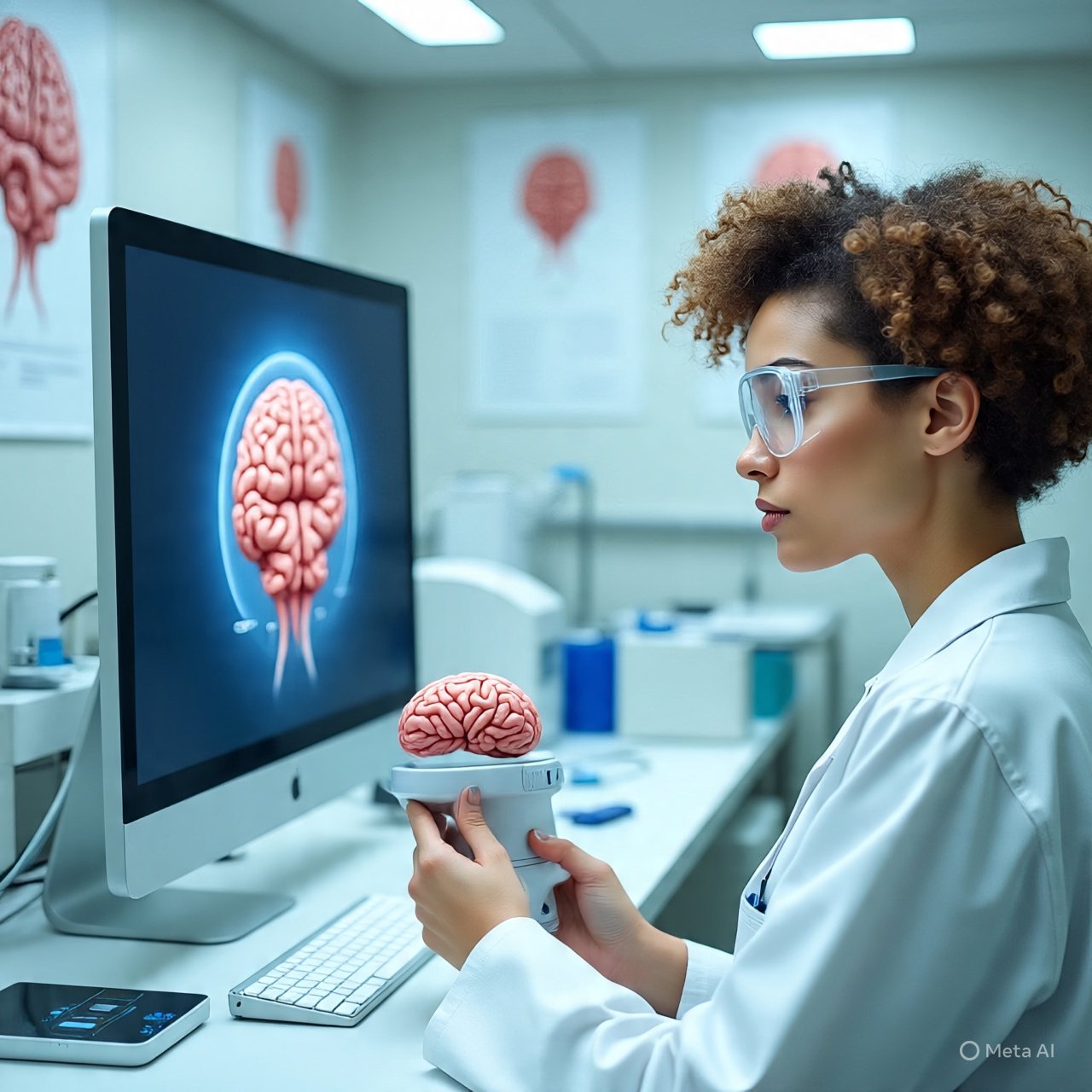Anticipated Blessings: The Neuroscience of Spiritual Expectation
Introduction
Hidden deep within the human brain lies an amazing capability – the “system of anticipation” – a psychological and neurological process that not only affects our daily lives but also plays a key role in spiritual experiences. This is the first study between the Islamic concept of “Barakah” (blessing) and modern neuroscience that discovers how the prior expectation of spiritual reward creates profound effects on the human brain and body. When a Muslim anticipates the spiritual reward of prayer, fasting, charity, or any good deed, this mere expectation actually changes their brain chemistry, reshapes their neural pathways, and initiates positive transformation throughout their entire being. This article explores this unique connection – how expectation based on faith is not merely a thought but becomes a physical reality that transforms our existence on both spiritual and material levels.
The Neurochemistry of Expectation: Pathways of Blessing in the Brain
When a person anticipates spiritual reward, a complex chemical process begins in their brain. Activity increases in the prefrontal cortex, which controls feelings of hope and expectation. A series of dopamine releases occur in the striatum, responsible for reward anticipation. This dopamine not only creates feelings of happiness but also increases motivation and determination. Hormones like oxytocin and vasopressin are released from the hypothalamus, strengthening feelings of social bonding and spiritual connection. Activity decreases in the amygdala, reducing feelings of fear and anxiety. The combined result of all these neural changes is that the person not only feels spiritually stronger but also experiences positive effects on their physical health. This is the neural foundation upon which the concept of “anticipated blessing” stands.
Anticipated Blessings in Worship: Spiritual Preparation Before Prayer
The process of preparing for prayer is actually the beginning of a deep neurological and spiritual transformation. During ablution (wudu), when a person washes their body parts, their sensory cortex becomes activated. Signals from skin receptors during washing of hands, face, and feet activate brain areas associated with feelings of cleanliness and purity. The act of facing the Qibla affects spatial orientation, increasing activity in the parietal lobe. Saying “Allahu Akbar” activates the brainstem through vocal cord use. Body movements during standing, bowing, and prostration stimulate the cerebellum. The combined effect of all these neural activities is that human attention shifts from the external world to focus on the internal spiritual world.
Neurological Effects of Remembrance: Connection Between Tongue and Brain
Movements of the tongue and vocal vibrations during remembrance (dhikr) create profound effects on the brain. When a person says “Subhan Allah,” specific tongue movements stimulate the trigeminal nerve, which connects directly to the brainstem. Vibrations of the larynx during “Alhamdulillah” activate the vagus nerve, triggering relaxation response. Specific vibrations of the mouth cavity during “Allahu Akbar” create alpha waves in the frontal lobe. The result of all these neural effects is that the person performing dhikr not only feels spiritual peace but also experiences improved cognitive abilities.
Psychology of Supplication: Science of Plea and Expectation
The act of supplication (dua) directly affects the human brain’s reward system. When a person makes supplication, activity increases in the anterior cingulate cortex, associated with feelings of hope and expectation. The dorsolateral prefrontal cortex becomes activated, responsible for planning and future thinking. Activity increases in the thalamus, which plays a role in sensory information integration. The result of all these neural changes is that the person making supplication not only feels peace in the present moment but also develops positive expectation for the future.
Spiritual Preparation for Hajj and Umrah: Blessings Before the Journey
The process of preparing for Hajj or Umrah itself causes a deep psychological and neurological transformation. During journey preparation, spatial planning centers in the human brain become activated. New neural connections begin forming in the hippocampus. Future projection capability increases in the prefrontal cortex. All these neural changes combine to create a mental state in which the person begins anticipating the spiritual reward of Hajj or Umrah.
Psychology of Charity: Happiness Before Giving
From the moment of deciding to give charity, an interesting neurological process begins in the human brain. Dopamine release occurs in the ventral striatum, creating feelings of reward anticipation. Activity increases in the subgenual area, related to social bonding and empathy. The temporoparietal junction becomes activated, responsible for perspective-taking. The result of these neural changes is that the person giving charity begins feeling deep spiritual happiness even before giving the money.
Meditation and Mental Peace: Effects of Islamic Meditation
During Islamic meditation (contemplation and reflection), deep changes occur in the human brain. Activity in the Default Mode Network (DMN) decreases, reducing self-referential thoughts. The Salience Network becomes activated, improving present moment awareness. Connectivity increases in the Executive Control Network, improving attention and focus. The result of these neural changes is that the person meditating not only feels mental peace but the expectation of spiritual reward also causes positive transformation in their entire being.
Ramadan: Spiritual Preparation for the Month of Fasting
The spiritual feelings that arise in Muslims’ hearts before the arrival of Ramadan actually indicate a deep neurological transformation. During anticipation, the dopamine system in the human brain becomes activated. Serotonin levels change. Cortisol levels decrease. All these chemical changes combine to create a mental state in which the person becomes prepared for spiritual development.
The Holy Quran: Anticipated Blessings of Recitation
Mental preparation before reciting the Holy Quran is actually the beginning of a deep neurological transformation. When a person sits to read the Quran, language centers in their brain become activated. Activity increases in Wernicke’s area, responsible for language comprehension. Broca’s area becomes activated, related to speech production. Activity increases in the angular gyrus, which plays a role in multisensory integration.
Friday Prayer: Weekly Spiritual Renewal
The spiritual feelings that arise in Muslims’ hearts before the arrival of Friday actually indicate a deep neurological transformation. During anticipation, circadian rhythms in the human brain are affected. Various hormones are released from the pituitary gland. Balance is created in the autonomic nervous system. All these neural changes combine to create a mental state in which the person becomes prepared for spiritual renewal.
Facing the Kaaba: Neuroscience of Qibla Direction
The act of facing the Qibla actually affects the human brain’s spatial orientation system. Head direction cells in the parietal lobe become activated. Grid cells in the entorhinal cortex become functional. Place cells in the hippocampus begin working. All these neural cells combine to create a mental map in the human brain, with the Qibla at its center.
Spiritual Evolution: The Journey of Expectation and Transformation
The journey of spiritual development is actually a long process of continuous changes in the human brain. Under neuroplasticity, neural connections in the brain keep changing. Through neurogenesis, new neurons keep forming. Through synaptic pruning, unnecessary connections keep being eliminated. All these neural changes combine to pave the way for human spiritual evolution.
Conclusion
This concept of anticipated blessing actually serves as a bridge between faith and science. When we understand that the expectation of spiritual reward is not merely a thought but a physical reality, our faith becomes stronger. This new discovery in neuroscience tells us that Allah’s system is based not only on spiritual but also on physical laws. This knowledge of anticipated blessing teaches us that the effects of our spiritual actions are not limited to their performance alone, but are also present in the stages of their expectation and preparation. This is the great truth that strengthens our faith further and invites us to contemplate the wisdom of Allah’s system.


